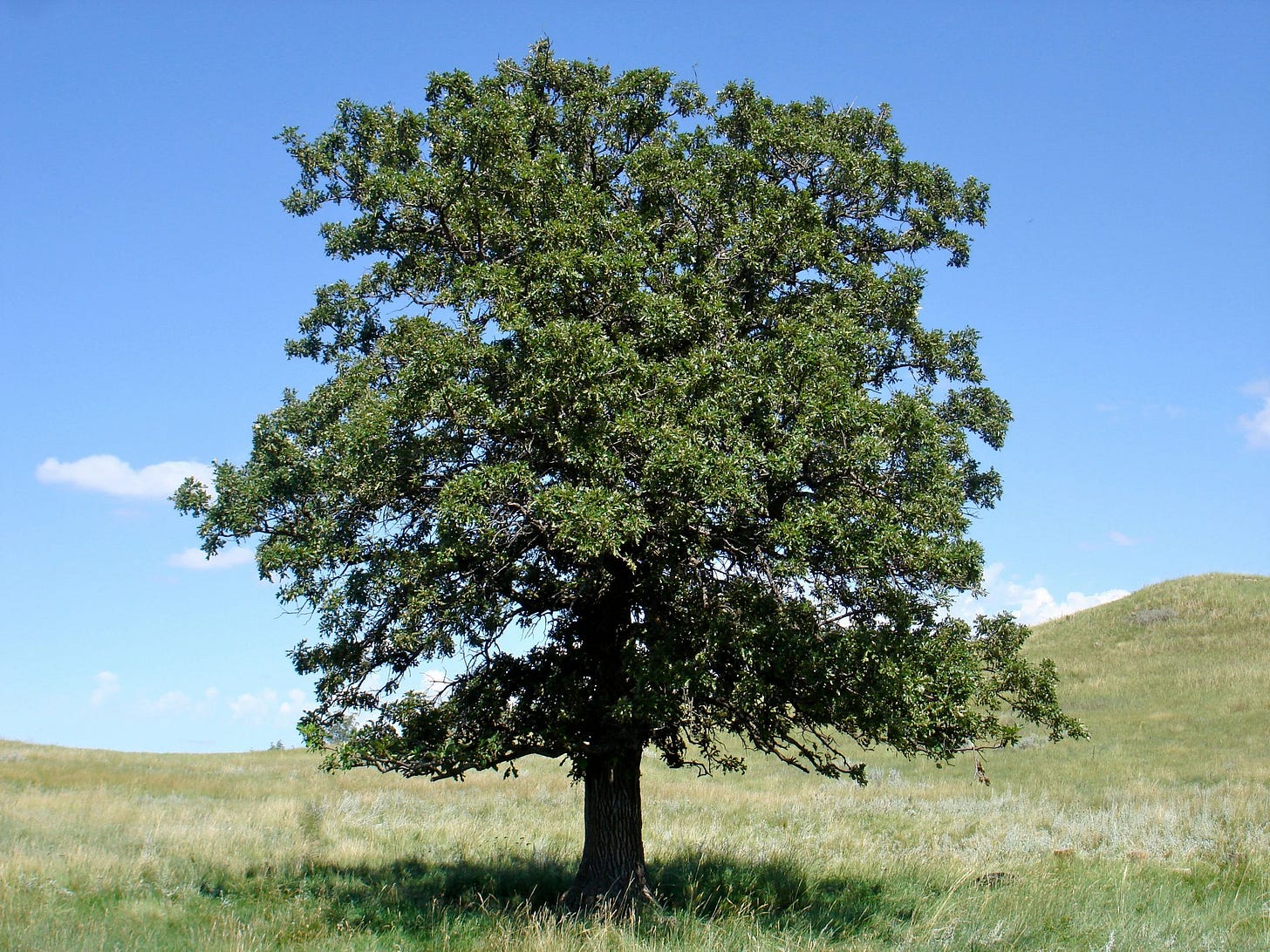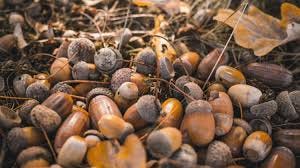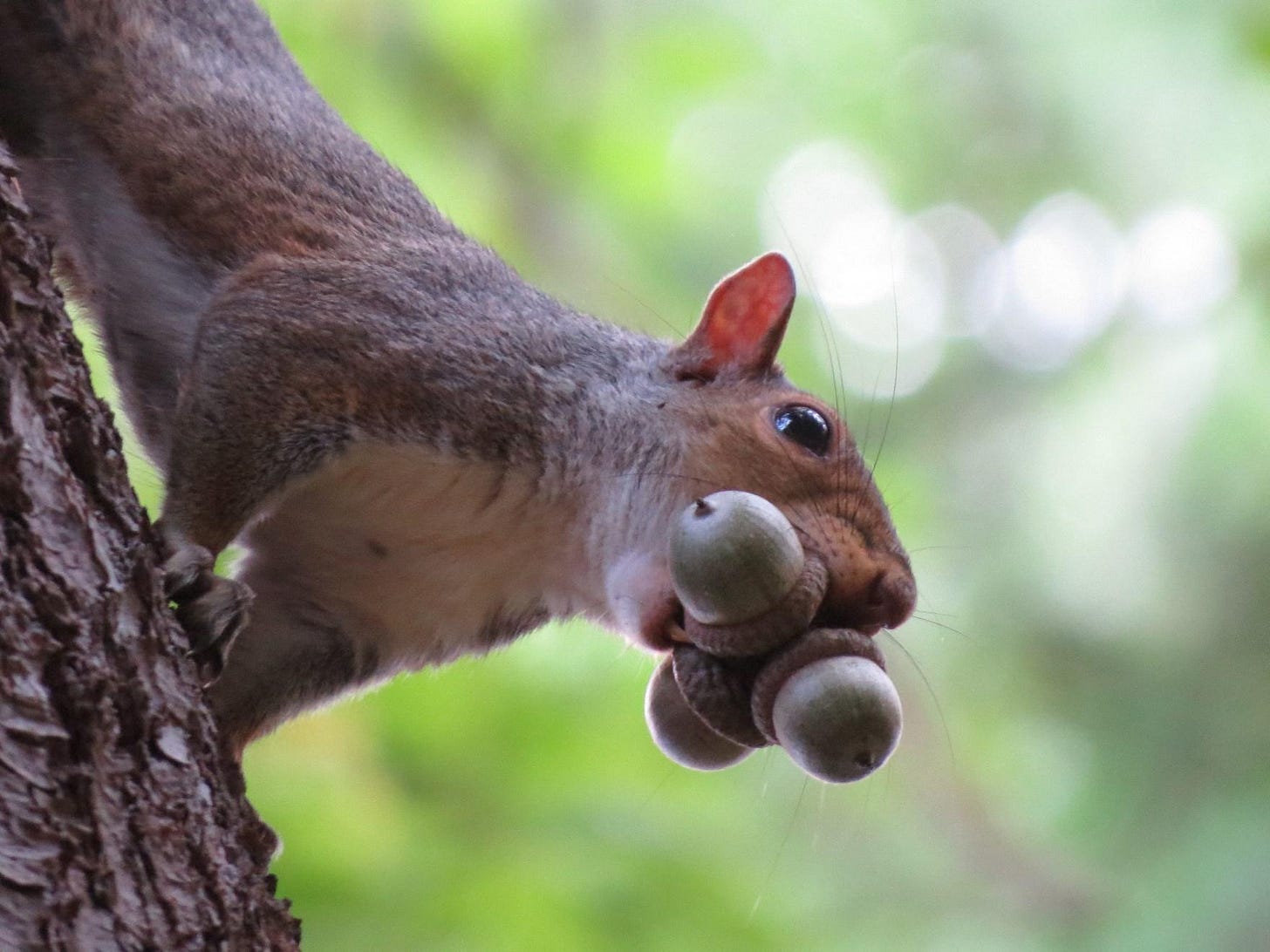Many are called; but, since few choose to be chosen, few are chosen. Aldous Huxley
It was a bumper crop of acorns last fall. All day long I could hear the sounds of them dropping from the black oak nearby: the hollow thump of an acorn smacking the hot tub cover, the sharp thwack of an acorn bouncing off the walkway, the reverberating clang of an acorn ricocheting off the patio table and chairs, but mostly the acorns fell with a muted thud onto good soil. Ten thousand of them! That’s how many acorns the experts estimate a black oak can produce during a peak year like this one. And out of ten thousand, how many will germinate, sprout, and eventually grow into a mature oak? Maybe one.
But which one?
The deer and the squirrels feasted on acorns. The weeds choked out a good many more. The remaining acorns were legion, layers of them, so many, in fact, they covered up the good soil they had fallen upon, but very few of them germinated. So why does a singular acorn come alive when so many neighboring acorns don’t? Evidently, being perfectly formed and ideally situated upon good soil isn’t enough. Something more is required. Something intangible.
With The Parable of the Sower in mind, try this thought experiment. Think of yourself as a flawless acorn, one of many that has fallen onto good soil. The deer and the squirrels have overlooked you, and your little patch of ground is free of weeds. What’s more, you’ve been blessed with just the right amount of light and moisture to enable you to answer the call to become more than an acorn. Do you answer that call? Most of us, I think, would sign up without a second thought. But what if you knew in advance of the suffering to come? What if you intuitively sensed the long and difficult labor ahead, not to mention the profound discomfort, should you commit yourself to struggling within the confines of a hard and unforgiving shell, the entirety of your embryonic being swelling and pushing, pushing and swelling, until finally, painfully, the pressure breaks open the wall of the prison cell and the light comes in? Still think you’d volunteer?
I believe that most of us, given the choice, would rather stay as we are, stay an acorn, opting for our familiar and even comfortable limitations, too afraid or too lazy or some combination of both to voluntarily submit ourselves to the seemingly unendurable force that would transform us. Fear is forgivable. Laziness not so much. Fear, after all, isn’t counted among the deadly sins. But sloth is certainly on the list. Moreover, a case can be made that sloth is the deadliest of the seven. Pride, gluttony, envy and the others: we can’t possibly outgrow them–not if we’re too damn lazy to put in the work!






Janet here. Parables and fables have so much to offer us. I love it when there is a completely different take on a given story. The whole concept of being chosen has always been problematic for me. The way you brought in another perspective… well done.
Good parable and it fits us all.
I don’t know how many eggs a woman is blessed with for her fertility period but once a month for say 50 years and it ads up to make the odds of our birth remote even without birth control and abortion.
I don’t know how an acorn is created but suspect there is a cross of genes meaning a lot of want to be acorns never become acorns just like only a few, if any, of a woman’s eggs become fetuses and humans.
But the real remote odds are in the male sperm. Supposedly millions run the gamut up to the occasional egg clinging precariously on the uterus wall but out of millions there is only one first and it closes the door to the millions behind it.
Like the rare acorn that becomes a tree, we are all extremely rare winners.
It means we are all exceptional and need to make the best of being exceptional winners.